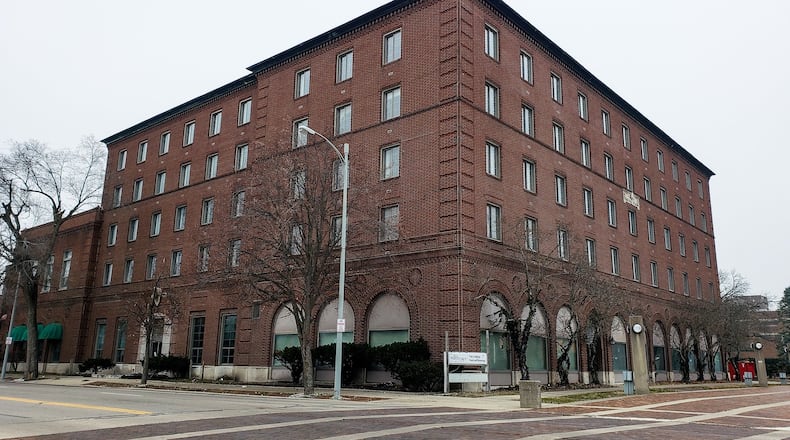“We’re open to further discussion, but we don’t anticipate reaching a settlement,” said Susan Cohen, city administrative services director.
City officials were not optimistic about progress even after last month’s announcement of a $4 million state historic tax credit award to the project. The project had already received a $5.6 million federal historic preservation tax credit award, according to court documents.
The project cost was estimated at nearly $40.3 million, according to Ohio Development Services Agency information.
Grau’s company purchased each building for $1 as part of a redevelopment deal in 2014. Both buildings have been vacant for several years and have been the target of break-ins and vandalism.
The city claimed the project should had been completed and took action to try to regain ownership in October 2018. Grau filed suit in December 2018. The litigation put a hold on the project.
“Unfortunately, the granting of State Historic Tax Credits accounts for only one small piece of the necessarily complex capital stack that would be required to result in the Manchester project moving forward as a large-scale adaptive reuse of the property for a boutique Hotel and micro-brewery,” Middletown City Manager Jim Palenick said last month.
Rick Hamilton, a Cincinnati attorney who is representing the Manchester Hotel LLC ownership, was unavailable for comment.
Both sides said they will need two days each to present their cases, according to court documents.
Part of the dispute is about the city’s move to retake ownership with a clause
In a counterclaim to the lawsuit, the city is claiming damages of $811,541 in lost hotel and income tax revenue as a direct result of ownership’s failure to complete the redevelopment of the properties by the dates agreed to in the original agreement.
The city also said it asked for months but never received information from the ownership to evaluate his ability to proceed with any development and resolve the lawsuit.
Plans for both buildings include restoration to serve as a hotel again, and the Snider Ford Building would become a neighboring microbrewery and taproom.
Built in 1922, the hotel will have 91 rooms and suites and will maintain the restaurant, bar, and ballroom spaces.
The Manchester Hotel was added to the National Register of Historic Places in 2014.
About the Author

